Tim Bowness expresses his nowness with a summer album release entitled ‘Powder Dry’.
Cutting his teeth in PLENTY and then NO-MAN with Steven Wilson, the multi-instrumental singer / songwriter has also worked with the likes of Richard Barbieri, David Torn, Phil Manzanera, Roger Eno, Peter Hammill, Gavin Harrison, Saro Cosentino, David Rhodes, Colin Edwin and Peter Chilvers over the years.
While the gothic synth-driven first single ‘Rock Hudson’ is inspired by the iconic Hollywood star, it also doubles as a paranoid ode to online discourse. ‘Powder Dry’ possesses an urgency not previously heard on a Tim Bowness record. 16 tracks speed through its restless 40 minutes with a dark mood looming as a result of Bowness revisiting his passion for the post-punk and electronic pop acts of his teens.
His eighth solo album, ‘Powder Dry’ sees Bowness entirely write, produce and perform a full-length album on his own for the first time. But post-production reinforcements arrive in the form of Steven Wilson (also his partner in the popular podcast series ‘The Album Years’) who contributes its stereo and Surround Sound mixes as well as acting as a sounding board during that process.
ELECTRICITYCLUB.CO.UK chatted to Tim Bowness about the genesis of ‘Powder Dry’ and much more…
The new album is different in so many ways from previous releases, not least that it is a truly solo effort. Was this a conscious decision or did it just ‘happen’?
Musically, it was entirely an instinctive process. I let what I automatically came up with dictate the directions. ‘After Butterfly Mind’, which was a very energising album, everything seemed to come to a sudden standstill and I only co-wrote around four or five pieces over an 18 month period. All were fine, but nothing felt particularly fresh.
During this lull, Brian Hulse (my fellow PLENTY band member and solo collaborator) suggested that I do everything myself for the first time. I always write and demo songs for my releases (and NO-MAN’s), but bar a few Bandcamp downloads I’ve never had the confidence to make a purely solo release. Generally speaking, I get much better musicians than me to flesh out the music!
Once I’d decided to go it alone, everything fell into place very quickly. From the first piece I wrote for the album (‘When Summer Comes) to the last (‘Summer Turned’), I felt a real sense of excitement and discovery writing the music. The melodies and ideas flowed and I tried not to get in the way of them.
What was the approach to writing and recording? Did you set time aside or was it more organic?
Organic. If I had a feeling or an idea, I tried to capture it as best I could. Once I was caught up in the process of writing the album, things moved rapidly. I wrote 26 pieces overall, most of which seemed quite distinct from one another both in terms of emotional content and musical style. I genuinely think that the finished album is my most eclectic and unfettered release, and the 10 tracks I dropped from it explored even more directions.
What equipment was used and was it recorded at home?
It was entirely recorded at home and, for convenience, I used my cheapest equipment. Partly because it was easy to set up and lying around, and partly (in the case of the guitar, anyway) because it had a unique quality.
The only extravagance was that I used about five microphones (an sE, a Shure, a couple of Rødes, a Neumann etc) for the vocals. I’d often sing the songs through different mics to gauge which worked better for particular songs. By the end of the album, I was using two microphones exclusively (the Neumann and the recently released Røde NT1 Fifth Generation).
On a few songs, I recorded an electric guitar acoustically through a microphone and then processed the recordings through virtual pedal boards. Lo-fi!
Did you miss the collaborative aspect of recording and as a solo piece was there more pressure on you?
I love collaborating and will continue to work with other musicians, but I can’t say I did miss it during the making of ‘Powder Dry’.
I felt a sense of freedom creating the album and while I’m without doubt the worst musician I work with, I found that my musical ignorance meant that I explored a lot more territory than I usually do. Often when I’m collaborating, musicians tend to present me with what they think will suit my voice. As such, the sonic and emotional palate can be more limited than what I come up with myself.
I didn’t feel any pressure, but the album was a real mixture of instinct and obsessive attention to detail. As you probably know, the recording process can be quick but the editing of vocal, guitar and keyboard takes can be exhausting and time-consuming (as can be the selection of sounds). The final 5% of any piece tends to eat up 99% of the time spent making it.
In the press release accompanying the album, you cite the likes of JOY DIVISION and THE CURE as influences on this release though I hear the likes of Momus throughout too. Did revisiting these artists during The Album Years podcast reignite something in you (The angry not so young man!?)
I think I realised a while back, that I’m still angry and unresolved in some ways and that that anger still makes its way into my music. Living in such a divisive and perilous time as we currently are doing also feeds in to this.
Momus’ work in the late 1980s and early 1990s was a big inspiration to the early NO-MAN. Particularly his ability to make ugly themes beautiful and accessible.
I was a big fan of the creative Post-Punk and electro-pop scenes between 1978-1984. As with Psychedelic / Underground / Progressive / Fusion / Progressive Soul music of the late 1960s/early 1970s, there was a real sense of artists expanding Rock’s vocabulary and accidentally discovering new sonic worlds. People like Bowie, Donna Summer, Kraftwerk and Eno had paved the way and established artists like Peter Gabriel, Kate Bush and Bill Nelson innovated in ways that equalled the young bucks such as JAPAN, COMSAT ANGELS, MAGAZINE and THE CURE, so it was an exciting time to be a teenager.
The tracks are all shorter than perhaps many of your fans would expect / like and in places are quite noise filled / punky. Was this what you felt was appropriate given the album themes of “ideological extremism, eco-apocalypse, and the all-too human quest for love in a time of crisis”?
It must have been!
In truth, the pieces came out the way they did and I just went with the flow of ideas. In most cases, the lyrics were a response to the music. I mostly write words to the melodies (which, in turn, spring from the music), though I do have a large file of phrases, titles and lyric ideas that I also draw from.
‘Built To Last’ and ‘Idiots At Large’ fall into the eco-apocalypse category and the music and lyrics work well together in both cases, I feel. Despite being ugly as hell, the final blast of ominous noise on ‘Built To Last’ was a delight to create. I was very pleased that Steven asked me how on earth I achieved the guitar sound (which is more like a distorted multi-tracked foghorn than an instrument!).
There are some moments of respite from the gloom. ‘Lost / Not Lost’ is as close as I’ve come to a euphoric love / lust song in years.
How did you get inspired to write a song about Rock Hudson, is there something in his tragic story that makes him perfect foil for the Tim Bowness world?
A definite yes to that. He was a commanding presence who did some great work (‘Seconds’ being my personal favourite). His dual life and the compromises he made in order to maintain a career in Hollywood was certainly a source of inspiration. Significantly, he was also the person who humanised AIDS for a generation (bringing in more funding and understanding as a result of publicising his diagnosis).
As a kid, I liked a number of his films and TV appearances. Knowing later that he did many under duress added a poignancy to his legacy as well as my enjoyment of his work.
Steven Wilson mixed the album and also acted as your sounding board. How did that second ‘task’ manifest itself?
Well, Steven was very encouraging right from the start. When I told him about what I was doing, he said (like Brian) that it was something I should have done a long time ago. Steven’s view was that my demos tended to be less polite and more adventurous than what ended up on my albums.
When I’d nearly finished the album, SW asked to hear the music. He was very complimentary and started mixing straight away. His positive response encouraged me to finish everything off.
He was a sounding board in that he commented on the tracks he liked the most and made me stick to the album just being me. He also edited a few tracks differently. So, he added a cut and paste coda to one track, truncated a couple of others, shifted where the backing vocals were on another etc. On a couple of the songs he went further, but I rejected those as I felt they weren’t operating in the spirit of the purely solo album that we’d both decided it should be.
You’ve been playing live sporadically over the last couple of years and the sets you have performed are not the usual fare one would expect, like at the ‘Butterfly Mind’ album launch in 2022, you played nothing from the actual album for example! How do you go about putting a live Tim Bowness set together?
I always work to the strength of the musicians I’m playing with. I’ve never been interested in replicating albums on stage as, for me, the live experience should be something unique, expressive and spontaneous. I select material that I think will suit the players.
The current live band I have is incredibly powerful and very different from most line-ups I’ve worked with (very ‘whisper to a scream’ in terms of dynamics). No piece is ever performed in the same way. While I do play solo and new work, it’s been a delight to breathe new life into NO-MAN pieces like ‘Housekeeping’ and ‘Sweetheart Raw’ that haven’t been played live for decades.
You have a number of different formats available for the release. Is this an expectation you have to meet now and how do you keep it ‘fresh’?
That was a record company decision. I’d have probably kept things to CD / Blu-Ray and vinyl if allowed. That said, I still like the cassette format and coloured vinyls are lovely to have and to hold.
The album is still sacrosanct for me and I always work to the classic 35 to 45 minute limits of the traditional physical LP. I feel it’s the ideal length for the music I make. It took me 30 attempts to get the sequencing right and I ended up dropping a couple of my favourite songs from the sessions.
As for freshness, it may seem weird at this stage of my career, but I approach everything as if it’s the first time I’ve ever done it. For me, this could even be a debut album.
On that subject, the recent NO-MAN retrospective ‘Housekeeping’ was very well received. How pleased were you both with that and will there be a second set covering the later releases?
Really pleased as it’s music that still means a lot to both of us. Yes, we hope that there will be a second set covering a later period of the band’s music (though licensing might be an issue with some albums).
The continuing success of ‘The Album Years’ podcast must be gratifying. Yours and Steven’s knowledge of the music covered is frankly at times staggering. Do you need to rein one another in at points or is that all done in the edit?
It’s pretty much all in the edit. We tend to talk for hours and then edit ourselves down ruthlessly. If anything, the show doesn’t contain the true extent of our listening. Then again, when people complain about us not covering certain albums / artists, I often feel as if we don’t know enough!
The success has been very welcome and unexpected as has been the knowledge that certain artists have sold things off the back of the podcast (Godley & Creme and Peter Hammill, in particular).
What’s next for you? Will you be looking to tour this release?
Hopefully. There’ll be a date or two, plus a live album with Butterfly Mind. I’ve been writing new pieces on guitar of late, but I’ve no idea what they’ll become. I do have an idea – and some lyrics – for a follow up to ‘Lost In The Ghost Light’ (another love letter to the dying art of the album!) plus a desire to make a very quiet album that drifts into total silence. Outside of that, hopefully there will be some more PLENTY, NO-MAN and Bowness / Chilvers as well as a single with marvellous Julianne Regan.
While I’m really happy with where my music is at the moment (both live and in the studio), I don’t feel optimistic about the industry as a whole or about my carrying on making albums in the long-term. We’re living in a time where music has lost its value. Music is suffering as a consequence, along with 99.9% of musicians. There are still idealistic / interesting artists out there if you’re prepared to look, of course. That said, I sometimes don’t know how long I can positively carry on making music in such hostile commercial conditions.
ELECTRICITYCLUB.CO.UK gives its warmest thanks to Tim Bowness
Additional thanks to Simon Glacken at For The Lost
‘Powder Dry’ is released by Kscope on 13 September 2024 in pink and yellow coloured vinyl LP editions alongside a bonus CD edition with 5.1 surround sound DVD included. Standard black vinyl LP and standard CD editions will also be available – information at https://burningshed.com/store/timbowness
Tim Bowness plays Prog The Forest at The Fiddler’s Elbow, Camden, London NW5 3HS on 1 December 2024
https://www.facebook.com/timbowness/
https://twitter.com/TimBowness
https://www.instagram.com/tim_bowness/
Interview by Ian Ferguson
Additional material by Chi Ming Lai
Photos by Leon Barker
29th July 2024

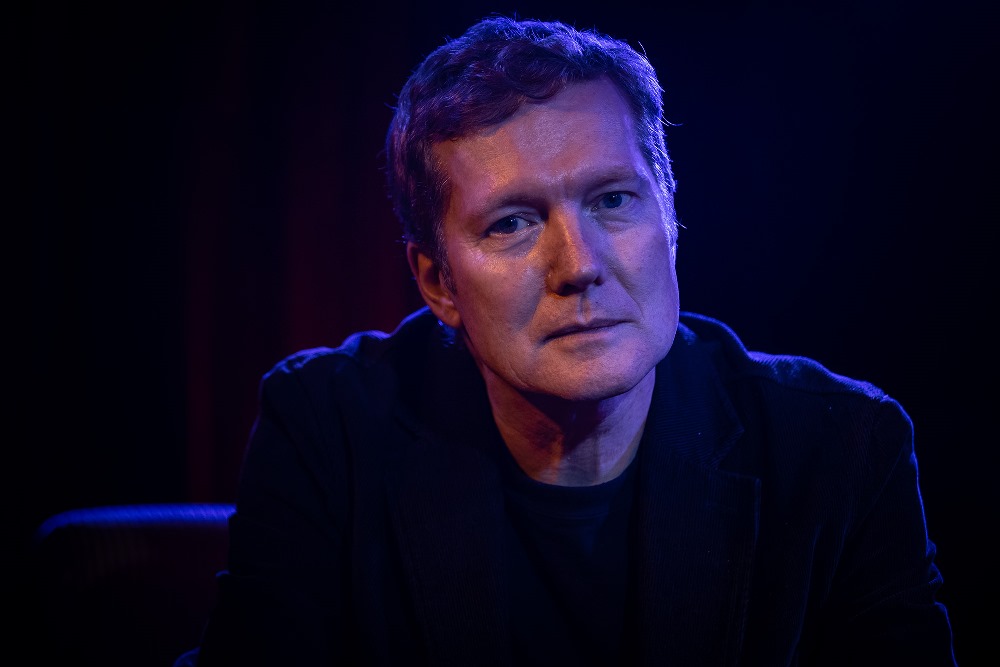
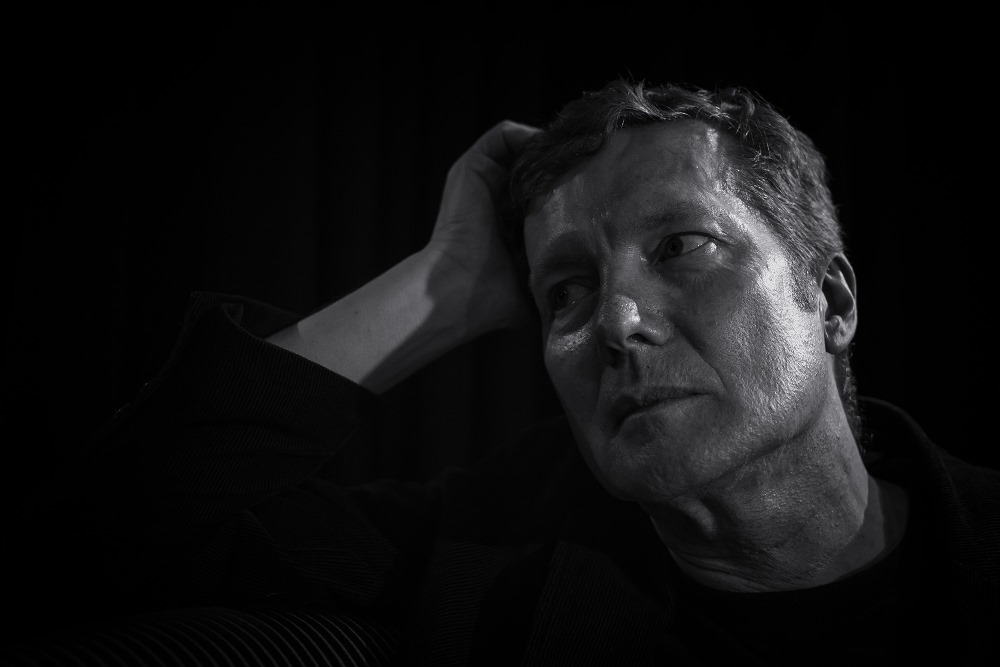
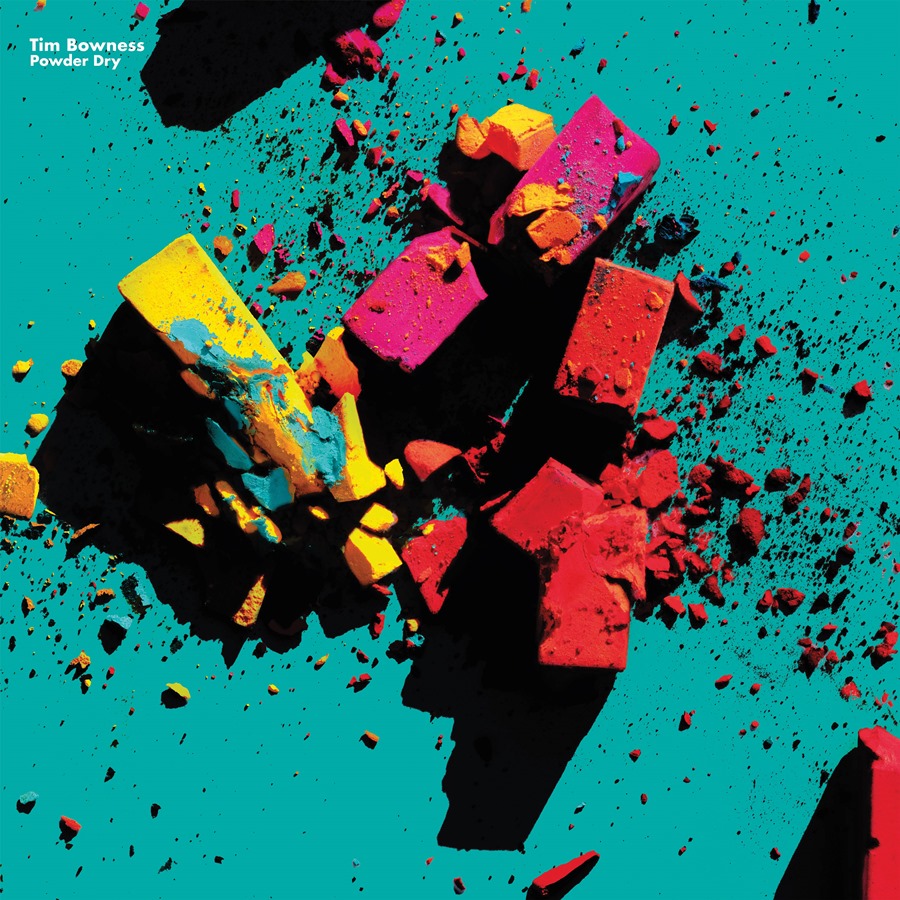
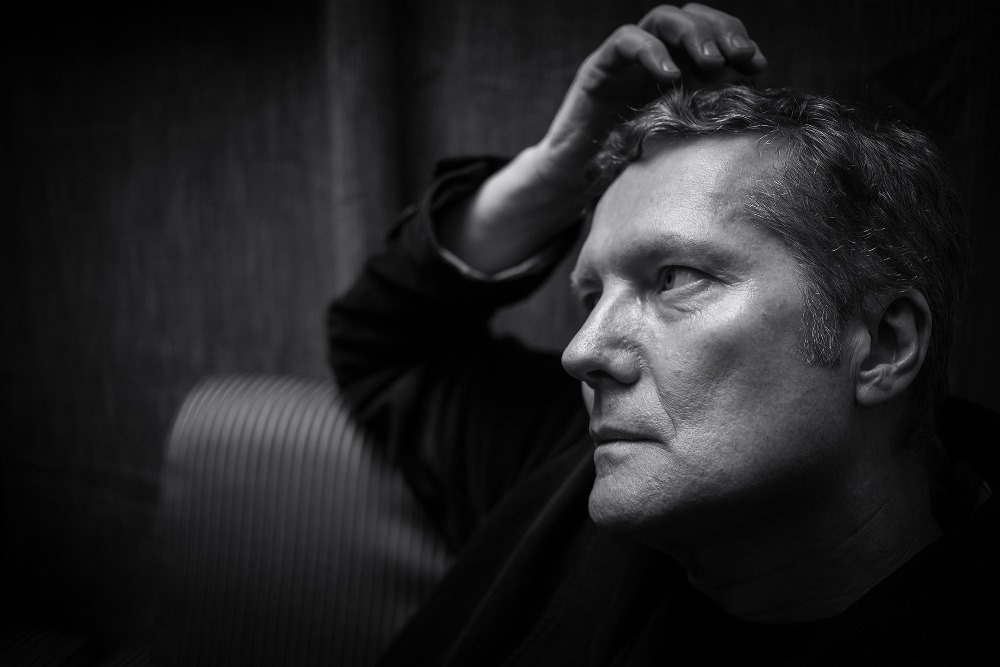
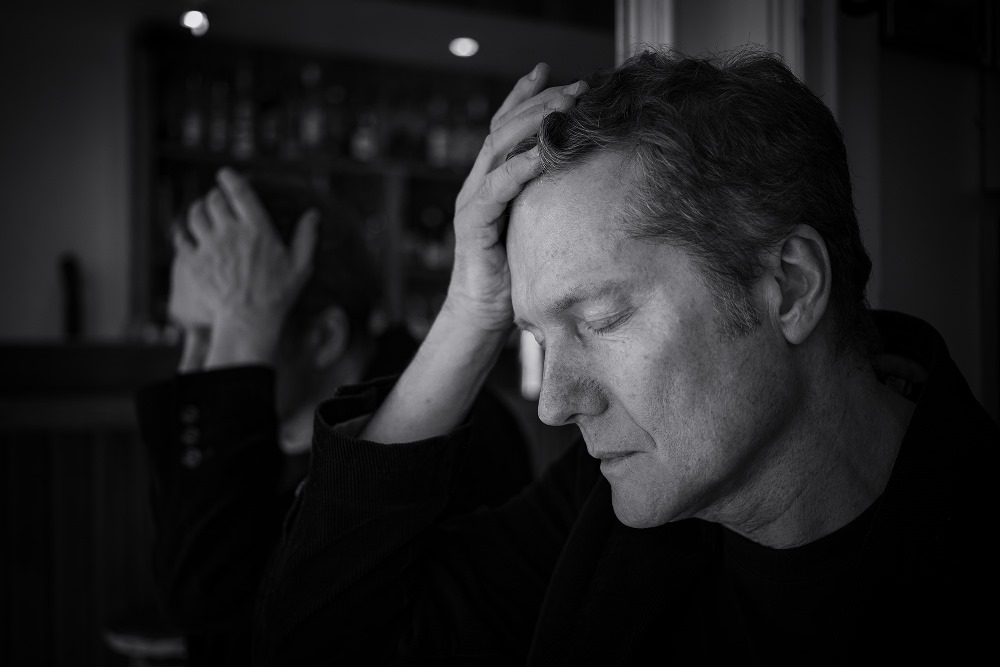
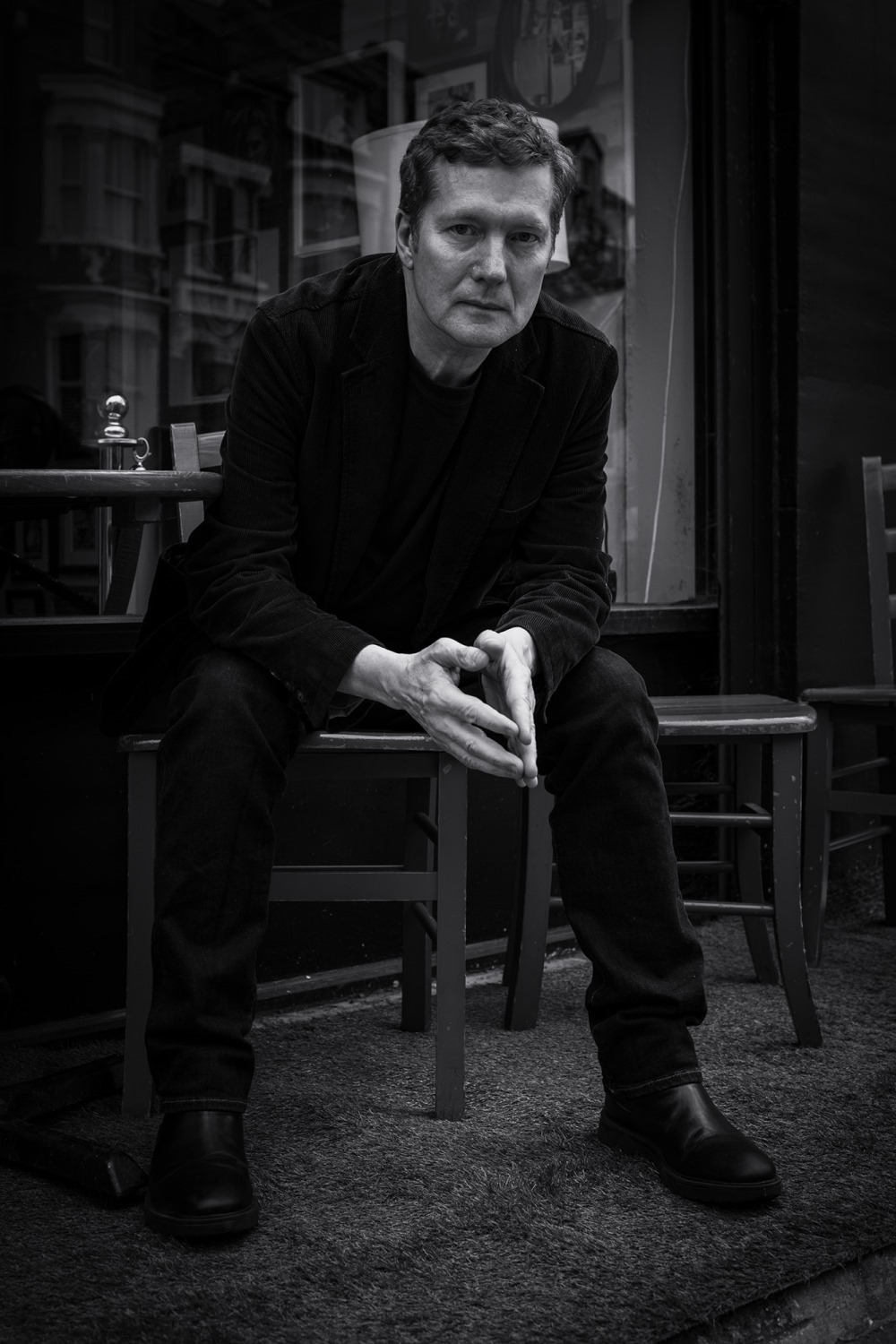
Follow Us!